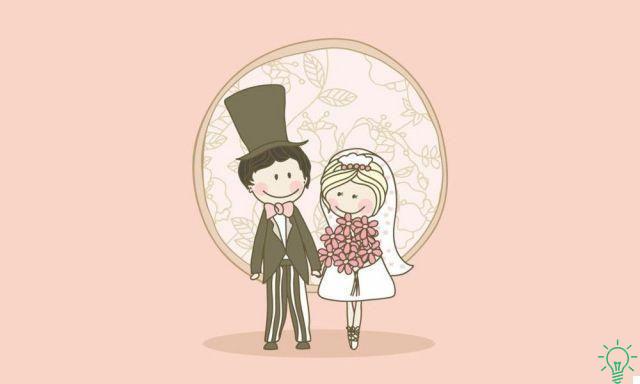Integrative couple therapy is part of the third generation therapies. This approach places the emphasis on private experiences (emotions and thoughts), acceptance and mindfulness.

Last update: July 02, 2022
According to Riva (2012), integrative couple therapy is part of third generation therapies. This approach places the emphasis on private experiences (emotions and thoughts), acceptance and mindfulness.
It also pays particular attention to the functional analysis of behavior as a yardstick for evaluating problems, taking into account the context in which they arise, the precedents and consequences of abnormal behaviors, as well as the personal history of the people involved.
As Cordova (2002) points out, this couple therapy is defined as “integrative” as it integrates acceptance techniques and those of couple behavioral therapy.
From traditional behavioral couples therapy to integrative therapy
Integrative couples therapy responds to an evolution of traditional behavioral therapy (Jacobson and Margolin, 1979), as it incorporates an emotional acceptance component and does not focus much on change in terms of behavior. These characteristics make it belong to the paradigm of third generation therapies.
Studies highlighting that it is a different therapy than traditional behavioral and that the mechanisms change make it more suitable for treating relationship problems.
Accepting what has happened is the first step in overcoming the consequences of any misfortune.
-William James-
Integrative couple therapy as a third generation therapy
Acceptance
Acceptance techniques are applied to help couples adapt to their differences so that they do not become a source of chronic conflict. The main strategies to be applied, according to Dimidjan, Martell and Christense (2008), are the following:
- Empathic union. The goal is to limit the negative behaviors of the couple, and to do this, patients are required to express the pain caused by these behaviors, without making accusations or blaming, but simply showing the emotions that their behavior has triggered to the spouse or partner.
- Unified detachment. The goal is to lead the couple to identify the interactions that lead to the frustration of both. Partners are led to look at problems from another perspective, making a deep analysis of the aspects that encourage behavior that crumbles the couple and insisting that they talk about them as spectators.
- Tolerance. It applies when the previous techniques don't work. The therapist helps the couple to broaden the tolerance margins of each other. It is not a question of returning to the idealization phase of the first stages of falling in love, but of elaborating an objective analysis and recovering the positive aspects of the partner.
Never above you, never below you, always by your side.
-Walter Winchell-
Mindfulness
Mindfulness is a modern technique that is based on very ancient approaches, which have their roots in different Eastern and Western religions and philosophies, although it is Buddhism that exerts the main influence on this technique. In fact, it refers toattention and full awareness of the "here and now", without going into the merits of evaluations and judgments.
According to O'Kelly and Collard (2012), a relationship faces several trials throughout its life. With this technique, you get a better ability to manage these situations, mitigating the effects they trigger in the couple relationship; moreover, it allows the person to become aware of the way in which he relates to others based on concrete emotional states. Finally, it helps improve self-control.
In the wake of this model, it relies on spontaneous strengths (for example, a smile, a compliment). That is to say, this technique makes a limited use of rules outside the couple dynamics to reinforce what is claimed by traditional behavioral couple therapy.
Studies on integrative couple therapy
Jacobson, Christensen, Prince, Cordova, and Eldridge (2000) compare couples' behavioral therapy with integrative therapy. The data obtained from this study indicate that participants undergoing integrative therapy showed greater satisfaction than couples undergoing behavioral therapy.
Similar data were also obtained from a subsequent study, conducted by Perissutti and Barraca. As of the analysis of twelve studies, they found a slight improvement in patients undergoing integrative therapy, both at the end of treatment and after a certain number of years. However, these same authors found that five years after completion of integrative therapy and behavioral therapy, the results obtained were very similar.
Love is not possession but freedom.
-Rabindranath Tagore-
To conclude ...
This approach combines techniques of cognitive therapy and new strategies to stimulate acceptance, helping you to get to know your own emotions and those of your partner better.
This therapy considers the subject is emotionally reactive to the different behaviors of the partner; therefore, it aims to improve trust, intimacy and complicity within the couple.
We must think that in the face of greater acceptance, we are more likely to implement changes to improve, to adapt to the other, to communicate more clearly and to resolve conflicts.


























